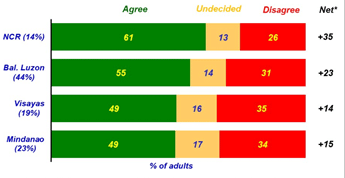12 FAQs Divorce in the Philippines
In our family law practice, probably the most frequently asked question is “Can you get divorced in the Philippines?”
The short answer is no. There is still no divorce in the Philippines in 2023 although there are efforts to try to introduce it.
There are some limited exceptions such as divorce among Muslims or when a Filipino is divorced from a foreign spouse. These types of divorces are recognized in the Philippines, however;
This is not applicable to the majority of married Filipinos. For them, the only two options to dissolve a marriage are through Voidable Marriage or through Void Marriages (commonly called Annulment).
And yet, the Philippines and its stance on divorce continues to attract attention and interest. This post discusses its history, current situation and 3 available options for those wishing to separate.
Let’s just dive right in.
1. What is divorce update in the Philippines for 2023?
With regard to a divorce bill update for 2023 for the Philippines, it is not very encouraging.
On March 22, 2023, a committee in the House of Representatives approved a bill to allow Philippine divorce in 2023 for couples who had “irreversibly dead marriages”.
Still, this is only a committee and the bill has not even passed the lower house. This is the closest that divorce in the Philippines in 2023 has come (and it isn’t very far)
For reference, we were closest to getting divorce in the Philippines to legal status back in 2018.
Last March 20, 2018, the House of Representatives approved the Absolute Divorce Act of 2018.
It was the first time in the House’s history that a Divorce bill had been passed. People lauded it as “historic” and it certainly was – no bill has ever gotten as far, although several attempts have been made.
But because the Senate and the President must also confirm any Philippine Divorce law, this 2018 attempt did not become law.
You see for Philippine Divorce to exist the bill must also be passed by the Senate.
2. What is the process for a Philippine divorce bill to become law?
First, the House must pass a bill. This is what happened in 2018.
That is why people were so excited that the House passed the bill -it has never happened before and it was the furthest we had ever come.
Then, the Senate must pass the Bill (for reference, this has never happened).
First, a senator must sponsor the bill.
Then it must go through several readings on the Senate floor.
Then it has to be passed and forwarded to the president (who, mind you, can still void it).
So far, no Senator has sponsored it and – and we are not sure what the president thinks about divorce.
Thus, divorce is illegal in the Philippines in 2023 (again, with the exception of Muslim divorces and divorces obtained when one of the partners is a foreigner. These types of divorces are valid and if you want to figure out how to file a divorce in Philippines obtained abroad so that the Philippines recognizes it, we can certainly help you. Our post on Recognizing a Foreign Divorce in the Philippines is also a good place to start.)
3. What does the newest version of the divorce law in the Philippines in 2023 contain?
The bill for the proposed Philippine divorce law in 2023 was patterned after the 2018 Absolute Divorce Act that passed in the lower house.
It would have been for marriages that have completely collapsed without hope of reconciliation. It would still require proof of the cause of the divorce.
Quickie divorces would not be allowed.
A 60 day cooling off period would be followed after filing to try to get the couple to reconcile.
Collusion – or a secret arrangement between spouses to manufacture grounds for divorce – would still be forbidden.
These are big, big changes but since the divorce bill is not yet law, you cannot yet avail of it.
The only solutions?
Void (commonly called Annulment) or Voidable Marriages are the only options for Filipinos married to Filipinos.
4. Why does the Philippines not allow divorce?
Well, chalk it up to history and religion.
The Philippines was ruled by Spain for over 300 years. Spain was firmly against divorce and only allowed something like today’s legal separation as defined by Siete Partidos. In legal separation Philippines, spouses no longer have to live together or share property but they cannot get married again.
America introduced a limited form of divorce in 1917’s Act No. 2710 which allowed divorce in cases of a criminal conviction for adultery.
Japan expanded divorce grounds though Executive Order 141 which included dissertation, abandonment and abuse among several others.
But Philippine divorce was completely disallowed when the Philippines got its independence after WWII. And with the powerful Catholic church completely against divorce, the Filipinos have for many years only been able to resort to legal separation, void (commonly called annulment) or voidable marriages.
Interested in the legislative history of divorce? A more thorough discussion can be found in this post.
5. Has the Philippines tried to legalize divorce?
Yes, absolutely there have been efforts to have a divorce in the Philippines.
1999 The House Bill 6993 entitled “An Act Legalizing Divorce, Amending for Purpose Title II and Articles 55 to 67 thereunder of Executive Order No. 209, as amended by Executive Order No. 227 otherwise known as the Family Code of the Philippines” was filed.
2001 Senate Bill 782 and House Bill 878 were filed. They were similar in content to the 1999 Bill.
2005 Gabriela Rep. Liza Maza filed a divorce bill in congress. It mentioned common grounds for divorce with the Absolute Divorce Act of 2018 such as 5 year separation, 2 years legal separation or irreconcilable differences among others. It was refiled several times since.
2018 The Absolute Divorce Act of 2018 passed Congress. It is the only divorce bill to have come this far but it still has a long way to go and is still not law.
6. How do Filipinos regard divorce?
Filipinos still seem to want to process a divorce in the Philippines.
2017 showed that the majority of Filipinos at 53% support a divorce bill with 30% strongly agreed and 23% agreed in two surveys conducted March and December 2017.2819
19% were neutral and the remaining 32% disagreed.
2005 saw Filipinos evenly split but the years after have shown increased support for divorce among all surveyed segments such as people who were widowed, never married, married or who have a live-in partner.

Regionally, the National Capital Region had the highest support for divorce at 61% with the rest of Luzon at 55%.

It seems as if support for divorce is there and that Filipinos on the whole are in favor of it.
7. What is the social impact of divorce on Philippine society?
Marriage rates have fallen. This has been accompanied by an increase in cohabitation and annulment, which is the only often legal option to dissolve a marriage in the Philippines.

Abalos’s Divorce and Separation in the Philippines suggests that this may be due to economic trends. However, he also mentions that this may partially be attributable to the lack of divorce.
8. What are the complications that can arise?
- 2 Filipinos divorced abroad in Dubai but they are still husband and wife in the Philippines. The decide to go through the process of annulment and are now on the 3rd year of the case. They may have wanted to do this for property and inheritance issues.
- A legal wife was awarded property bought by her husband even though the property was in the name of his common law wife.
- Illegitimate Children only inherit half of a legitimate child’s share.
While not all situations result in problems with property and inheritance, problems can certainly arise.
If there is property or children involved, it is much easier to annul a marriage and prevent possible problems.
9. What are the options available to dissolve a marriage in the Philippines?
- If there is a foreigner spouse, then a divorce abroad can be brought to court in a Recognition of Foreign Divorce proceeding.
- If there was a flaw in the marriage certificate, ceremony, or solemnizing officer among other less likely grounds, then it can be brought to court as a voidable marriage.
- For the vast majority, the marriage will have to go through annulment.
I’ve encountered several people who want to dissolve their marriage.
They often wonder what option they should take.
For a very few, a flaw might be found in the way the marriage was performed. If there was no marriage license, there was an unauthorized solemnizing officer or it was otherwise invalid then it can be voided.
For those with foreigner spouses at the time of the divorce, Recognition of Foreign Divorce is a good option to have the divorce acknowledged by the Philippine government.
But for the vast majority, the only real option is annulment.
10. What is the difference between divorce and annulment?
People often call annulment “divorce Philippine style” and is really the only option to end a marriage between 2 Filipinos especially since you cannot get a divorce in the Philippines
While annulment and divorce both end a marriage, there are some major differences.
- It can take at least 3 years. It can be longer due to the court’s busy schedule and if the spouses cannot compromise regarding property and children.
- Most will use psychological incapacity as a ground. This is actually difficult to prove as grounds such as infidelity, abuse, or abandonment are not by themselves enough to annul a marriage. It is only when these point to one spouse being absolutely incapable of fulfilling his marital duties that annulment is granted.
- Husband and wife cannot jointly file the petition.
- 5% of petitions are denied and when a petition is denied with finality, you cannot file again.
- It is costly.
What this means for most is that it is a long and often costly process.
There has to be a lot of evidence for annulment to be granted and a lot does depend on the discretion of the court.
(Remember that for those who have obtained a divorce from a foreigner, these divorces can be processed. I’ve detailed how to process this divorce in the Philippines in my post “Recognition of Foreign Divorce process).
11. Is there any cheaper or faster way to file an annulment?
There also aren’t middlemen or fixers who can really help. I’d actually caution you to stay away from people like this since they may just take a “down payment” and then well, let you down.
(In fact, we’ve come across several actual stories of this).
Some people also receive fake documents and find out that these are completely worthless when they want to immigrate or marry again. They end up paying again when they really shouldn’t have to.
And there is also no one who can just delete the Civil Registry copy of your marriage.
Don’t believe anyone who tells you otherwise.
In fact, the chief of the PSA’s vital statistics division Aurora Rosales said, “I don’t even have access at that level,” in a Rappler article discussing if fixers can actually delete the marriage certificate.
But that doesn’t mean that there is nothing you can do.
If you ACT responsibly, you can make sure that your annulment goes smoothly and is not unnecessarily delayed.
• Arrange all documents and proof to show your lawyer such as your marriage certificate and
a write-up as to why the marriage did not succeed. Include photos, text messages or emails
as supporting proof.
• Choose a good lawyer since a lot of the work can be done efficiently if your lawyer is
experienced in this.
• Talk to your ex-partner and work on a compromise with regard to property and children.
12. What should I watch out for to spot a scam?
First, check the Supreme Court website and the Integrated Bar of the Philippines.
Your lawyer’s name should appear on both lists.
The reason to check both lists is that sometimes one is more updated than the other. The Supreme court will remove disbarred or deceased lawyers from its list earlier than the IBP.
(Please do spell your lawyer’s name correctly. Some people couldn’t find their lawyer but that’s because they looked for a nickname or misspelled it by one letter…)
Second, your lawyer should be communicating with you.
There is a LOT of preparation a lawyer does for an annulment case and the facts will only come from you. (Your involvement is limited to providing the documents, facts and testimony but your lawyer does a lot, lot more.)
If he isn’t reaching out to you, then something is wrong.
I’d also be really wary of lawyers who say that you can have a no-appearance, cheap, fast annulment in 6 months.
It’s not likely to happen. Be wary of things that seem too good to be true – in many, many ways, it is.
References:
- Deogracias T. Reyes, History of Divorce Legislation since 1500
- GMA Network, Full text: Bill filed in Congress that would legalize divorce
- Social Weather Station, Agree-Disagree: Married Couples who have already separated and cannot reconcile anymore should be allowed to divorce so that they can legally marry again.






Is there any agency monitoring annullment cases in the Philippines? Where poor annullment petitioner complain against his bad lawyer?
Lawyers are subject to the disciplinary actions before the Integrated Bar of the Philippines.